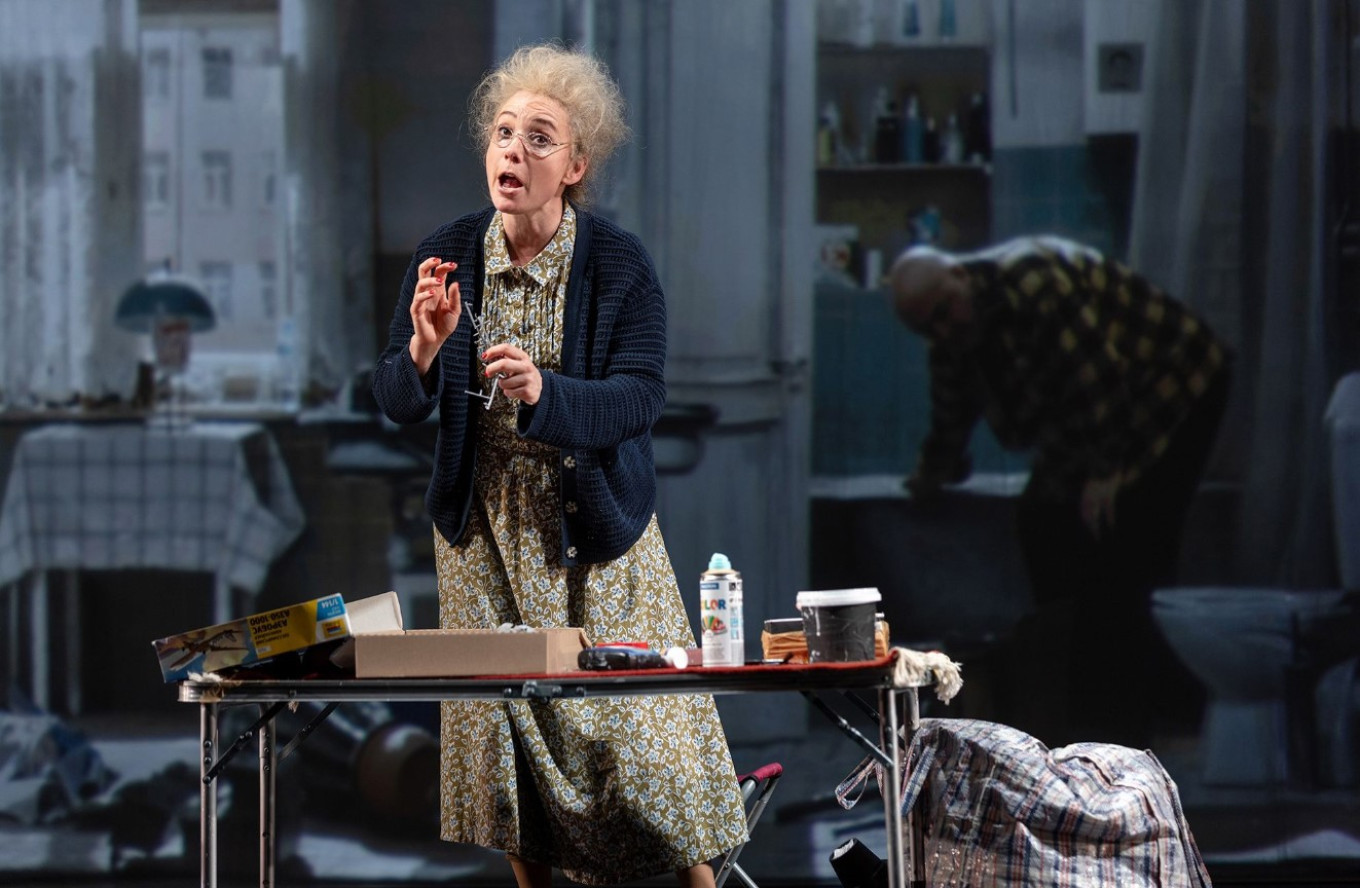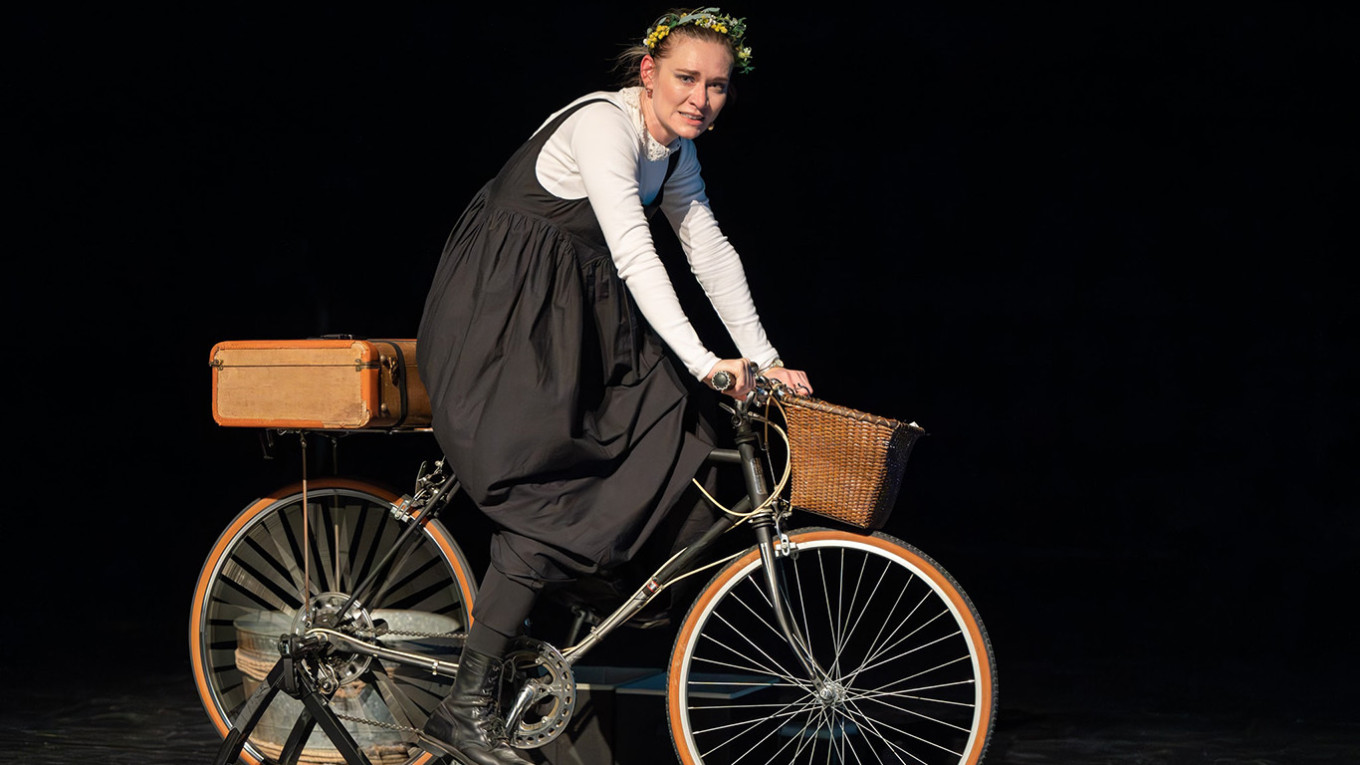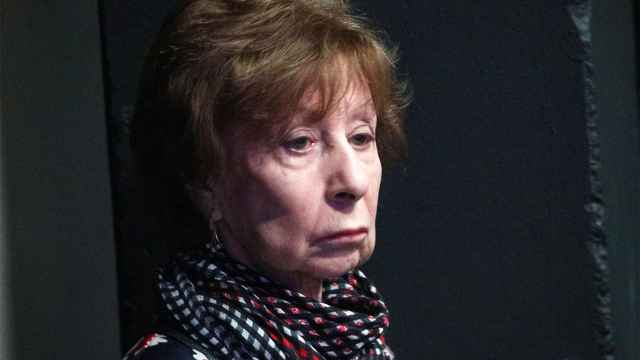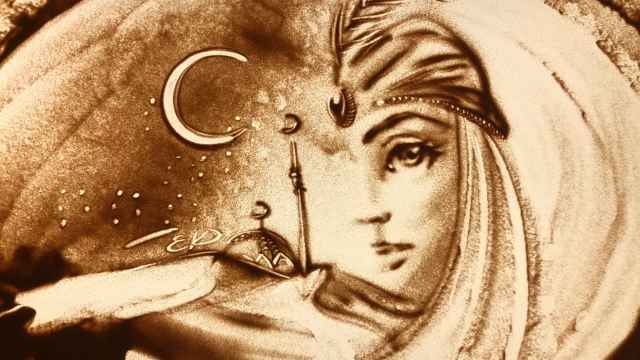Of all the artistic professions, actors, theater directors and playwrights have the hardest time in exile — especially if the emigration is sudden and unwanted. Finding a space to perform, an audience to perform for and material that will be meaningful to them are not easy tasks.
In 2024 there were several successful plays and other theatrical events outside Russia that were performed in the Russian language or about Russia and the CIS. War remained a dominant theme, but stories of exile and family estrangement also came to the forefront. Some artists went back to their own roots. Actress Masha Mashkova, best known in the West for her work in “McMafia,” wrote and starred in the one-woman show “Nadezhdiny."
Opening in Toronto in April to acclaim, Nadezhdiny is a political love story based on the diary of Mashkova’s great-grandmother. Melania Sevruk lived in Chisinau at the turn of the 20th century, where she met and married her husband, an exiled revolutionary from Kharkiv.
The play toured Canada, America and Europe, with 39-year old Mashkova playing multiple parts. She has called “Nadezhdiny” her “last conversation with a Russian-speaking audience,” a consequence, perhaps, of her personal troubles. Mashkova’s living relatives have failed to live up to her revolutionary ancestors, and in 2022 the actress publicly denounced her famous father. Vladimir Mashkov, who once directed a “Mission Impossible” film, continues to support Putin and make films in Russia.

In September, Berlin audiences had the chance to see “Vanya is Alive,” which The Moscow Times reviewed last year. As in “Nadezhdiny” all the parts are played by one actor; the excellent Nikolai Mulakov. The celebrated anti-war drama returns to London for a limited run in February 2025.
“Cremulator,” based on a novel by rising Belarusian author Sasha Filipenko, premiered in Prague in October. The story charts the real-life transformation of an ordinary Soviet officer into a feared informer and crematorium boss.
It’s been a busy season for Cremulator’s director, Maxim Didenko, whose adaptation of “Salome” ran simultaneously in Tel Aviv. Few directors have been as lucky as Didenko, who was an established figure in the west long before the war.

Noah Birksted-Breen, director of British theatre troupe “Sputnik,” told The Moscow Times that for most Russian exiles finding a creative home in European theatres is “incredibly challenging.”
“The majority are discovering that there is little sympathy for Russians in general in Europe,” said Birksted-Breen, who sources, translates and produces new international dramas for UK audiences in addition to conducting academic research on theatre in exile.
“The notion of the 'bad' immigrant is rubbing off onto them. It doesn't seem to matter that many Russian playwrights were spreading staunchly liberal, anti-war and anti-Putin messages in their plays and productions before 2022.”
Some of these tensions were felt at the premiere of Dmitry Krymov’s “Notes of the Mad,” which The Moscow Times caught in Riga last October. At the last minute, Latvian authorities announced that the play would no longer be held at the Latvian National Theatre, due to a ban on Russian language productions projected to last until the end of the war with Ukraine.
Audience and cast decamped to a warehouse in the city suburbs. Michele Berdy wrote that the new venue was a good fit for this frenetic show about “actors who haven’t played the roles they long to play, who hide in costumes.”
In 2025 Krymov will stage new work on the other side of the ocean. “Metamorphoses: A Few Ways of Keeping Your Child From Running Around at his Great Uncle’s Funeral” will premiere in New York in March. New York will also host a new English language adaptation of Bulgakov’s “The Master and Margarita,” which the Wall Street called “maliciously inventive [...] ripe, antic, and at times enjoyably over the top.”

Two successful productions from last year will run again in 2025. Cremulator heads to Belgrade in February, followed by Prague, Tbilisi, and Riga. Maxim Sukhanov will take the lead role. In June, audiences in Amsterdam will have a chance to see Kirill Serebrennikov’s “Boris Godunov” at the Dutch National Opera and Ballet. Mussorgsky’s classic tale of absolute power and the ghosts of the past has been reimagined for a twenty-first century audience, with an all-star cast.
But some performers now taking their chances in the West are likely to cause embarrassment for their exiled compatriots. Back in Moscow, troubled ballet dancer Sergei Polunin has announced his impending exit from Russia.
A destination has not been named, but it’s unlikely that Ukrainian-born Polunin, who performed in annexed Crimea and has multiple tattoos of Putin, will be invited back to London’s Royal Ballet. The 35-year old star was once the company’s youngest ever male principal. It is not certain where he will land.
In a recent article for Novaya Gazeta, Lera Peshkova reflects on the “quietness” of political statements by exiled Russian creatives. “It’s a privilege to shout,” she observes. “Right now, that privilege belongs to Ukrainians — and rightly so. And to Belarusians [...] Any “shouting” by the Russian artists of today can be viewed as an appropriation of the right to suffer.”
But while Birksted-Breen is conscious of this perceived moral hierarchy amongst waves of exiles, he treats helping Russians as a form of soft power.
“Some of these theatre-makers are the cultural 'opposition-in-exile,' he told The Moscow Times. “An alternative democratic future for Russia. I'd urge British and European cultural leaders and audiences to remain open-minded towards them — at least considering that not all Russians are the same."
A Message from The Moscow Times:
Dear readers,
We are facing unprecedented challenges. Russia's Prosecutor General's Office has designated The Moscow Times as an "undesirable" organization, criminalizing our work and putting our staff at risk of prosecution. This follows our earlier unjust labeling as a "foreign agent."
These actions are direct attempts to silence independent journalism in Russia. The authorities claim our work "discredits the decisions of the Russian leadership." We see things differently: we strive to provide accurate, unbiased reporting on Russia.
We, the journalists of The Moscow Times, refuse to be silenced. But to continue our work, we need your help.
Your support, no matter how small, makes a world of difference. If you can, please support us monthly starting from just $2. It's quick to set up, and every contribution makes a significant impact.
By supporting The Moscow Times, you're defending open, independent journalism in the face of repression. Thank you for standing with us.
Remind me later.







